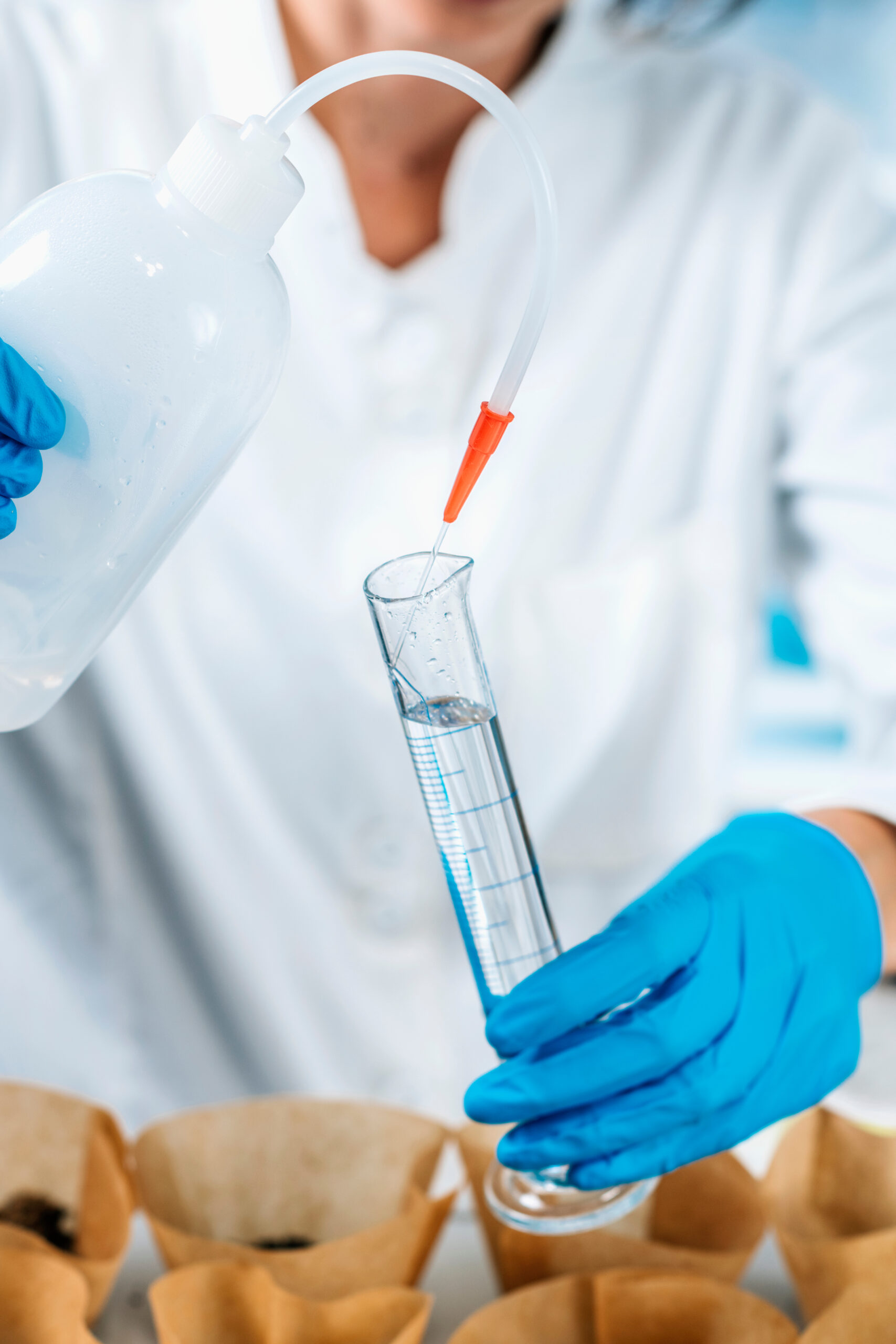For patients seeking answers. For practitioners seeking clarity.
Autoimmune Disease: A Functional Medicine Approach to Healing, Resilience, and Clinical Mastery
You Deserve More Than a Diagnosis
Autoimmune disease is often misunderstood—even by the people who treat it. It’s not just inflammation. It’s not “your body attacking itself.” And it’s certainly not all in your head.
Autoimmunity is a complex, whole-body process driven by immune dysregulation—and it can affect every system in your body, from your hormones to your nervous system, your skin to your digestion.
Whether you’re a patient seeking long-overdue answers or a practitioner trying to navigate the grey areas of clinical care, I’m here to help.
For Patients
For Practitioners
What Is Autoimmune Disease?
Autoimmune disease occurs when the immune system loses its tolerance to self-tissue and begins producing antibodies that damage the body’s own cells.
But the real story is much more nuanced.
Autoimmunity develops over time—often years before a diagnosis is made—and is influenced by a triad of factors:
- Genetic susceptibility
- Environmental triggers (infections, toxins, stress, diet)
- Immune system dysregulation
There are more than 100 recognized autoimmune diseases, and even more that are suspected to have autoimmune components. Here are some of the most common:
- Rheumatoid arthritis
- Hashimoto’s Thyroiditis
- Graves Disease
- Lupus
- Psoriasis
- Multiple sclerosis
- Type 1 Diabetes
- Coeliac Disease
- Scleroderma
- Inflammatory bowel disease
Understanding the underlying mechanisms—rather than just the diagnosis—is key to helping patients truly heal.
Autoimmune Disease Doesn’t Follow the Rules
If you’ve worked with autoimmune cases, you already know: nothing is ever just textbook.
Patients come in with symptoms that don’t fit neatly into categories. They may have vague, fluctuating complaints—or multiple diagnoses that seem disconnected. And often, they’ve been dismissed, misdiagnosed, or stuck in a cycle of trial-and-error for years.
Here’s what that complexity can look like:
Neurological & Cognitive
- Brain fog and memory issues
- Migraines or chronic headaches
- Numbness, tingling, or dizziness
Musculoskeletal
- Joint pain and stiffness
- Muscle weakness or spasms
- Unexplained aches
Mental Health
- Anxiety, depression, or mood swings
- Insomnia or unrefreshing sleep
Endocrine & Hormonal
- Irregular menstrual cycles
- Infertility or miscarriage
- Adrenal or thyroid dysfunction
Dermatological
- Eczema, psoriasis, or vitiligo
- Rashes or hives
- Hair loss or thinning
Gastrointestinal
- Bloating, gas, or discomfort
- Food sensitivities
- IBD, constipation, or diarrhea
Systemic & Overlapping
- Chronic fatigue
- Temperature dysregulation
- Nutrient deficiencies
- Multiple autoimmune diagnoses
My Clinical Perspective
Autoimmunity isn’t just a clinical focus for me—it’s personal.
I was diagnosed with Coeliac Disease in 2004, and like many people, I initially believed that removing gluten would be enough. But even after changing my diet, my health didn’t fully recover. That experience opened my eyes to the complexity of autoimmune disease—and the limitations of a one-size-fits-all approach.
Since then, I’ve spent more than 20 years working at the intersection of clinical nutrition, functional medicine, and immunology. I’ve supported thousands of patients through complex cases of autoimmunity, and I’ve mentored hundreds of practitioners across the UK, Europe, and North America.
I’m a Certified Functional Medicine Practitioner and Nutritional Therapist. I’ve been a clinical educator for Cyrex Labs since 2013, and I regularly consult with leading laboratories including Genova Diagnostics, Doctor’s Data, Regenerus, and Mosaic Diagnostics. I serve on the faculty of the Institute for Optimum Nutrition and the University of Northampshire.
I created The Autoimmune Academy to bridge the gap between cutting-edge science and real-world clinical care.
Because here’s what I’ve seen, again and again:
People do everything right—
- They remove gluten and dairy
- They run labs and follow protocols
- They take medications and supplements
…and still, they don’t feel better
It’s not because they’ve failed.
It’s because the system has failed to see the whole picture.
I’m here to change that—for both patients and the practitioners who care for them.
“When we shift from symptom suppression to immune support, everything changes. An autoimmune diagnosis is not the end of the story. It’s the beginning. It’s a call to go deeper.”
— Robyn Puglia

A Functional Medicine Approach to Autoimmunity:
Where the Real Work Begins
In conventional medicine, autoimmune disease is often managed with immune-suppressing drugs, lifelong medication, or even surgical removal of the affected organ.
The goal isn’t necessarily to resolve the condition—it’s to suppress symptoms, slow progression, or manage flare-ups. While these approaches can be necessary and even life-saving, they rarely ask: Why did this happen in the first place?
That’s where functional medicine comes in.
Instead of suppressing the immune system, we support it.
Instead of accepting dysfunction as permanent, we look for what’s driving it—and how to create lasting change.
If you have autoimmune thyroid disease, for example, the problem isn’t just in your thyroid—it’s in the immune system. And no amount of thyroid medication will rebalance that on its own.
To truly heal, we need to address the deeper immune dysfunction that caused the issue in the first place. And in the Autoimmune Academy, I teach you how to do this with your patients.
Healing Isn’t About a Magic Bullet. It’s a Process of Discovery.
Sometimes, we do find a single environmental trigger that makes a dramatic difference—like a food sensitivity or a hidden infection. But more often, it’s a combination of factors working together, creating the perfect storm for immune dysfunction.
The good news? That means there’s a lot we can do to take back control.
These are the key areas I explore with my patients:
- Stress and nervous system regulation
- Sleep—both quantity and quality
- Immune responses to food proteins
- Gut health, including microbial balance and intestinal permeability
- Latent infections, like viruses or stealth bacteria
- Dietary patterns—pro-inflammatory vs anti-inflammatory
- Toxin exposure—including heavy metals and mold (mycotoxins)
How We Begin to Unravel Autoimmunity
First, we don’t start by focusing on your diagnosis—we start by focusing on you. Autoimmunity is part of the picture, but it’s not the whole story. Before we dive into protocols or testing, we take a step back and look closely at what’s obvious and unique about your case: your symptoms, your history, your lifestyle, your body.
Rather than centering the disease, we ask: What does your body need to return to a state of health and balance?
We begin by strengthening the foundations:
- Nourishing, personalized nutrition
- Restful, restorative sleep
- A healthy, regulated stress response
Only after that do we consider deeper testing to explore:
- Gut health and microbial balance
- Intestinal permeability (“leaky gut”)
- Food reactivity and immune triggers
- Chronic infections or toxin exposure
- Autoantibodies or immune system patterns
These insights help us understand what’s driving immune dysregulation—and how to support your body’s natural resilience. If symptoms persist after the basics are in place, we dig deeper. Sometimes toxins, stealth infections, or more subtle immune patterns need to be explored.
Because ultimately, this isn’t about treating a disease—it’s about understanding what you need to heal.

For Patients:
Your Healing Journey Starts Here
If you’ve been diagnosed with an autoimmune condition—or suspect something is off even though you haven’t received a name for it—I can help.
There’s no one-size-fits-all protocol.
Every case of autoimmunity is different—and every person deserves a tailored, thoughtful approach rooted in science, compassion, and experience.
I know from personal experience how overwhelming it can be to receive an autoimmune diagnosis. But I also know, deeply and professionally, how much is possible.
There is so much you can do to improve how you feel, reclaim your energy, and live fully again.
And I’d be honoured to support you on that journey.

For Practitioners:
Learn to Navigate Autoimmune with Confidence
Autoimmunity is never “always” anything.
That’s what makes it fascinating—and frustrating.
If you’ve ever felt stuck, second-guessed your approach, or wished for a clearer clinical framework, The Autoimmune Academy was built for you.
I teach functional medicine practitioners how to:
- Understand immune mechanisms and tolerance
- Interpret autoantibody patterns with nuance
- Build flexible, unbiased toolkits
- Strategize for real-world cases that don’t fit protocols
- Communicate clearly with patients and other providers
Let’s move beyond overwhelm—and into mastery.
Free Resources to Support You
Download: The Functional Medicine Guide to Autoimmune Testing
Podcast: Autoimmunity & Women’s Health with Tanya Borowski
Explore Blogs on Triggers, Testing & Immune Recovery

